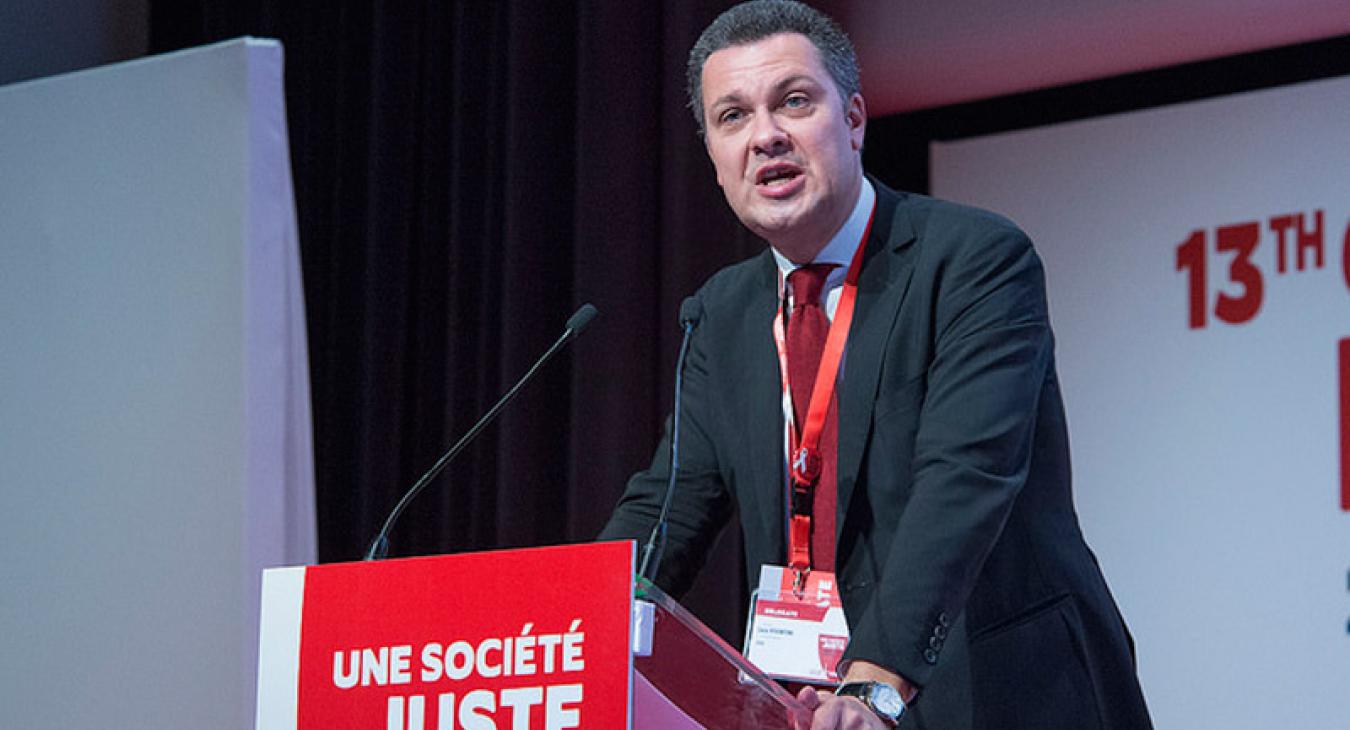
ETUC General Secretary Luca Visentinioutlines the reasoning behind the organisation's ambitious new campaign - a pay rise for workers across Europe
Wages in Europe have collapsed in the last decade.
The cause?
Globalisation, the financial crisis and, above all, the austerity measures that followed from the crisis. Wage cuts and the dismantling of collective bargaining and minimum wage systems have been the principle - and badly chosen - tools of economic adjustment.
Today, after almost a decade of pain for workers, we can say in sadness but absolute confidence that it hasn't worked. Instead of recovery, we still face stagnation, high levels of unemployment, a fall in demand.
The fall in wages caused a fall in demand, along with rising inequality, in-work poverty and even more pressure on welfare systems.
A general pay rise for all workers across Europe would boost economic recovery by supporting demand and growth. A pay rise for workers would make growth more sustainable and inclusive.
They best way to increase wages is through trade union membership and collective bargaining. But we have witnessed a systematic dismantling of collective bargaining in many EU countries.
National sectoral bargaining, and collective agreements covering all workers needs to be restored and restarted, extended where it's still working, created where it doesn't exist.
Establishing collective bargaining in big and multinational enterprises is needed to bring up wages in low wage countries - it's not acceptable that in the EU there are countries where the hourly wage is one tenth of that in other countries. This is pure exploitation.
Statutory minimum wages must also be increased to the rate of living wages, and trade unions need to be fully involved in setting those minimum wages.
That is the challenge for Europe and for the trade union movement.
The European Commission, the OECD, and even the IMF admit we have a problem with wage levels and inequality. So they should stop recommending that EU states cut wages and dismantle collective bargaining: they need to start recommending the opposite.
Employers need to recognise that higher wages and stronger collective bargaining benefit the economy and their own businesses: if workers have more money they will spend it on goods and services.
The European trade union movement is, as a matter of absolute urgency, opening a dialogue with EU institutions, national governments and employers, on the need for a pay rise and how it can be achieved
Spread the word by sharing this video or visit the campaign website and sign up.
And talk to your union branch or representative about supporting the call for a pay rise for workers across Europe.
